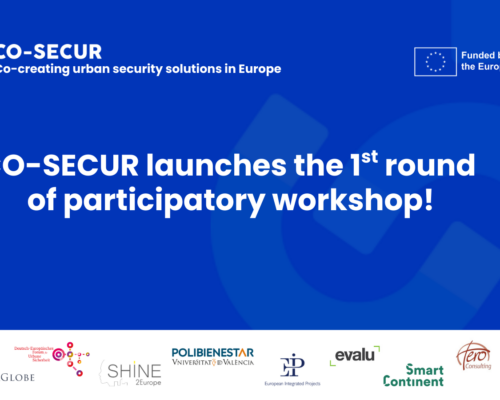CO-SECUR was a guest at the IcARUS final conference, June 25 – 26, 2024 in Liége, Belgium. In the EU project IcARUS 17 partners from 12 European countries used the design thinking approach to promote social innovation in the areas of:
🔹 Youth delinquency
🔹Radicalization leading to violent extremism
🔹Preventing and designing safe public spaces
🔹Reducing trafficking and organized crime
The partners collectively engaged in the design thinking process and adapted it to local contexts: first, identifying local needs; second, defining the scope of action; third, ideating creative solutions; fourth, prototyping these solutions; and finally, testing the prototypes practically. It was fascinating to observe how the project team managed to encourage local engagement, coordinate multi-stakeholder decision-making, and promote forward-thinking.
In the partner cities, new ideas emerged, or existing ones were expanded or refined to address social issues, for example:
➡️ In Stuttgart, Germany, the TRICK17 tool was created to enhance young people’s awareness and critical thinking skills, supporting resilience against radicalization. This included a magician’s show demonstrating how ideological and radical ideas can be subtly introduced into conversations to manipulate individuals. The tool aims to foster an interest in democratic values and encourage active participation in social activities within the city.
➡️ In Rotterdam, Netherlands, the Spaanse Polder Café was launched to engage the local business and professional community in taking responsibility for safety and security within the Spaanse Polder business park. This regular, interactive forum, based on the World Café concept, provides an accessible platform for discussing relevant topics and includes participative workshop activities. The event can be hosted up to four times a year.
About IcARUS 🔎
The IcARUS project aims to enhance urban security by integrating 30 years of research and practical insights into policy-making. It seeks to redesign the tools and methods used in urban security, providing a comprehensive, evidence-based approach. By involving multiple stakeholders, the project aspires to address complex urban security challenges more effectively and create policies that are both innovative and grounded in solid research.
The IcARUS tools can certainly be classified as social innovations, offering new strategies for addressing urban security issues. These innovations have the potential to inspire the social innovation portfolio being developed in the CO-SECUR project, contributing to a broader framework for improving social and urban safety.


